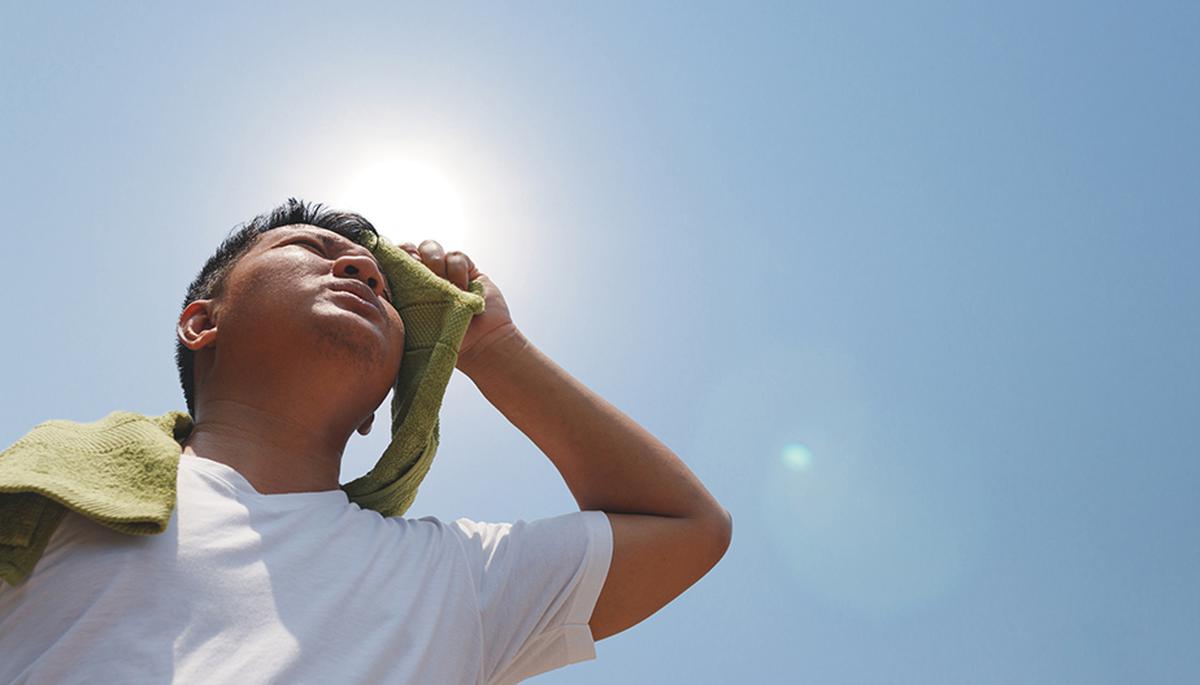Should Flight Attendants Wear Sunscreen?

Flight attendants play a crucial role in ensuring the safety and comfort of passengers during air travel. They are responsible for various tasks, from providing customer service to ensuring the adherence to safety protocols. However, one aspect that often goes unnoticed is the importance of sun protection for flight attendants. In this article, we will explore the reasons why flight attendants should wear sunscreen and the impact it can have on their health and well-being.
Table of Contents
- Introduction
- The Hazards of Sun Exposure
- 2.1 The Effects of UV Radiation
- 2.2 Occupational Sun Exposure
- Flight Attendants and Sun Exposure
- 3.1 Frequency of Sun Exposure
- 3.2 Risks and Consequences
- Benefits of Sunscreen for Flight Attendants
- 4.1 Protection Against Skin Cancer
- 4.2 Prevention of Premature Aging
- 4.3 Maintenance of Skin Health
- Factors to Consider for Flight Attendants
- 5.1 SPF Recommendations
- 5.2 Application and Reapplication
- 5.3 Uniform and Makeup Compatibility
- Best Practices for Sun Protection
- 6.1 Choosing the Right Sunscreen
- 6.2 Other Protective Measures
- Employer Responsibility and Support
- 7.1 Education and Training
- 7.2 Supplying Sunscreen
- 7.3 Shaded Break Areas
- Conclusion
- FAQs
- 9.1 Can flight attendants wear makeup over sunscreen?
- 9.2 Should flight attendants wear sunscreen even during night flights?
- 9.3 What are the specific SPF recommendations for flight attendants?
- 9.4 Are there any alternatives to sunscreen for sun protection?
- 9.5 Can flight attendants rely solely on the aircraft’s sun protection?
1. Introduction
As flight attendants spend a considerable amount of time in the air and are exposed to higher altitudes, it is vital to address the issue of sun protection. The risks associated with prolonged sun exposure can have long-term consequences on their health. By implementing sun protection measures, flight attendants can safeguard themselves from the harmful effects of UV radiation.
2. The Hazards of Sun Exposure
2.1 The Effects of UV Radiation
UV radiation emitted by the sun consists of UVA, UVB, and UVC rays. While UVC is mostly absorbed by the Earth’s atmosphere, UVA and UVB rays penetrate the skin, causing various adverse effects. Prolonged exposure to these rays can lead to skin cancer, premature aging, sunburns, and eye damage.
2.2 Occupational Sun Exposure
Flight attendants face a unique occupational hazard when it comes to sun exposure. Due to their job nature, they spend a significant amount of time at high altitudes where the UV radiation is stronger. Additionally, the windows of aircraft do not provide adequate protection against UV rays, making flight attendants more susceptible to their harmful effects.
3. Flight Attendants and Sun Exposure

3.1 Frequency of Sun Exposure
Flight attendants are exposed to the sun during their duty hours, especially when they perform in-flight services, such as meal distribution or passenger assistance. Even brief periods of exposure can accumulate over time and contribute to the risk of sun damage.
3.2 Risks and Consequences
Without proper sun protection, flight attendants are at an increased risk of developing skin cancer, including melanoma. Moreover, the cumulative effect of sun exposure can accelerate skin aging, leading to wrinkles, fine lines, and uneven skin tone.
4. Benefits of Sunscreen for Flight Attendants
4.1 Protection Against Skin Cancer
Applying sunscreen with a broad-spectrum SPF (Sun Protection Factor) helps to shield flight attendants from harmful UVA and UVB rays. Regular use of sunscreen significantly reduces the risk of skin cancer by preventing DNA damage and the formation of malignant cells.
4.2 Prevention of Premature Aging
Sunscreen acts as a barrier that prevents UV radiation from penetrating the skin. This protection helps flight attendants maintain a youthful appearance by minimizing the development of wrinkles, age spots, and sagging skin.
4.3 Maintenance of Skin Health
Flight attendants often face dry and dehydrated skin due to the low humidity levels on airplanes. Sunscreen not only protects against UV rays but also helps to retain moisture, keeping the skin nourished and healthy.
5. Factors to Consider for Flight Attendants
5.1 SPF Recommendations
It is recommended for flight attendants to use sunscreen with a minimum SPF of 30. However, those with fair skin or a history of skin cancer should opt for higher SPF levels to ensure enhanced protection.
5.2 Application and Reapplication
Flight attendants should apply sunscreen generously to all exposed areas of the body before their shifts. Additionally, regular reapplication every two hours is necessary, as well as after activities that may cause sweating or contact with water.
5.3 Uniform and Makeup Compatibility
Flight attendants should choose sunscreen that is compatible with their uniforms and does not stain or damage the fabric. It is advisable to opt for lightweight, non-greasy formulas that allow for easy incorporation into daily skincare and makeup routines.
6. Best Practices for Sun Protection

6.1 Choosing the Right Sunscreen
Flight attendants should select sunscreen products that offer broad-spectrum protection, ensuring defense against both UVA and UVB rays. Water-resistant formulas are also beneficial, considering the nature of their work. Buy Now Best Sunscreen in Best Price
6.2 Other Protective Measures
In addition to sunscreen, flight attendants can protect themselves further by wearing wide-brimmed hats, sunglasses with UV protection, and long-sleeved clothing. Seeking shade whenever possible and using umbrella attachments for outdoor duties can also minimize sun exposure.
7. Employer Responsibility and Support
7.1 Education and Training
Airlines should prioritize educating their flight attendants about the importance of sun protection and the potential risks of prolonged sun exposure. This training can include information about the proper use of sunscreen, the significance of reapplication, and the identification of early signs of skin damage.
7.2 Supplying Sunscreen
To ensure that flight attendants have access to suitable sun protection, airlines should provide sunscreen as part of their mandatory personal protective equipment (PPE). This initiative demonstrates a commitment to employee well-being and reinforces the importance of sun safety.
7.3 Shaded Break Areas
Creating shaded areas or designated break spaces with adequate protection from the sun allows flight attendants to seek respite during their breaks. These areas can be equipped with sunscreen dispensers and comfortable seating to encourage its use.
8. Conclusion
Flight attendants face a higher risk of sun damage due to their unique work environment and frequent exposure to UV radiation. By incorporating sunscreen into their daily routines, they can protect themselves from the harmful effects of the sun, including skin cancer and premature aging. Airlines should support and educate their flight attendants, providing the necessary resources for effective sun protection.
FAQs
9.1 Can flight attendants wear makeup over sunscreen?
Yes, flight attendants can wear makeup over sunscreen. However, it is essential to choose makeup products that are compatible with sunscreen and do not compromise its efficacy. Opting for lightweight, non-comedogenic formulations and allowing sufficient time for sunscreen to absorb before applying makeup is advisable.
9.2 Should flight attendants wear sunscreen even during night flights?
While the intensity of UV radiation is lower during night flights, flight attendants may still be exposed to some degree of UV rays, especially during takeoff and landing. To ensure comprehensive sun protection, it is recommended for flight attendants to continue using sunscreen during night flights, particularly if there are daytime segments within their schedule.
9.3 What are the specific SPF recommendations for flight attendants?
Flight attendants should use sunscreen with a minimum SPF of 30. However, individuals with fair skin or a history of skin cancer may benefit from higher SPF levels, such as SPF 50 or above, for enhanced protection against UV radiation.
9.4 Are there any alternatives to sunscreen for sun protection?
While sunscreen is the most effective form of sun protection, flight attendants can complement its use with other protective measures. Wearing wide-brimmed hats, sunglasses, and long-sleeved clothing, and seeking shade whenever possible are additional strategies that can minimize sun exposure.
9.5 Can flight attendants rely solely on the aircraft’s sun protection?
The windows of aircraft do not provide sufficient protection against UV radiation. Therefore, flight attendants should not rely solely on the aircraft’s sun protection. It is essential for them to use their own sunscreen and adopt other sun protection practices to ensure comprehensive coverage.
Get Access Now: our another web
